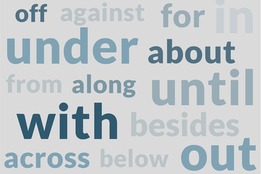invective
playWhat It Means
Invective means "insulting or abusive language." It can also refer to an abusive expression or speech.
// Her opening campaign speech was, to the shock of everyone present, filled with invective that contrasted sharply with the expectations of those in attendance.
invective in Context
There’s a racial aspect [to Taylor Jenkins Reid’s novel Carrie Soto is Back] too: the powerfully built, Latina Carrie is judged very differently to the supermodel blondes on tour. Reid includes mocked-up newspaper articles and transcripts of TV shows to illustrate the misogynistic invective that plagues her—and which, unfortunately, is far from historic.” — Marianka Swain, The Telegraph (London), 20 Aug. 2022
Did You Know?
Invective originated in the 15th century as an adjective meaning "of, relating to, or characterized by insult or abuse," but by the early 16th century, it was functioning as a noun referring to a harsh verbal attack, and within a few decades, to abusive language as a whole. Invective is similar to verbal abuse, but in addition to being a more formal term than abuse, invective tends to suggest not only anger and vehemence but also rhetorical skill. It sometimes also implies public denunciation, as in "blistering political invective."
Podcast
More Words of the Day
-
Dec 07
lachrymose
-
Dec 06
solace
-
Dec 05
abdicate
-
Dec 04
celerity
-
Dec 03
perceptible
-
Dec 02
gloaming





















